Symptoms of corneal edema include:
Blurry vision
Halos around lights
Sensitivity to light
Eye pain
Foreign body sensation in the eye […]
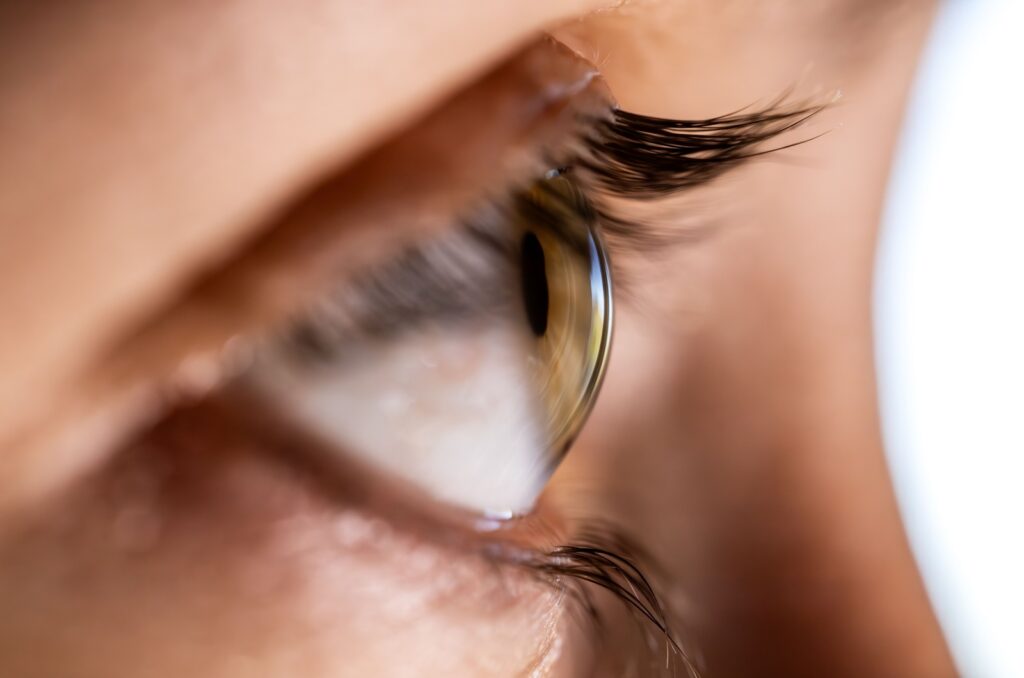
Symptoms of corneal edema include:
Blurry vision
Halos around lights
Sensitivity to light
Eye pain
Foreign body sensation in the eye […]
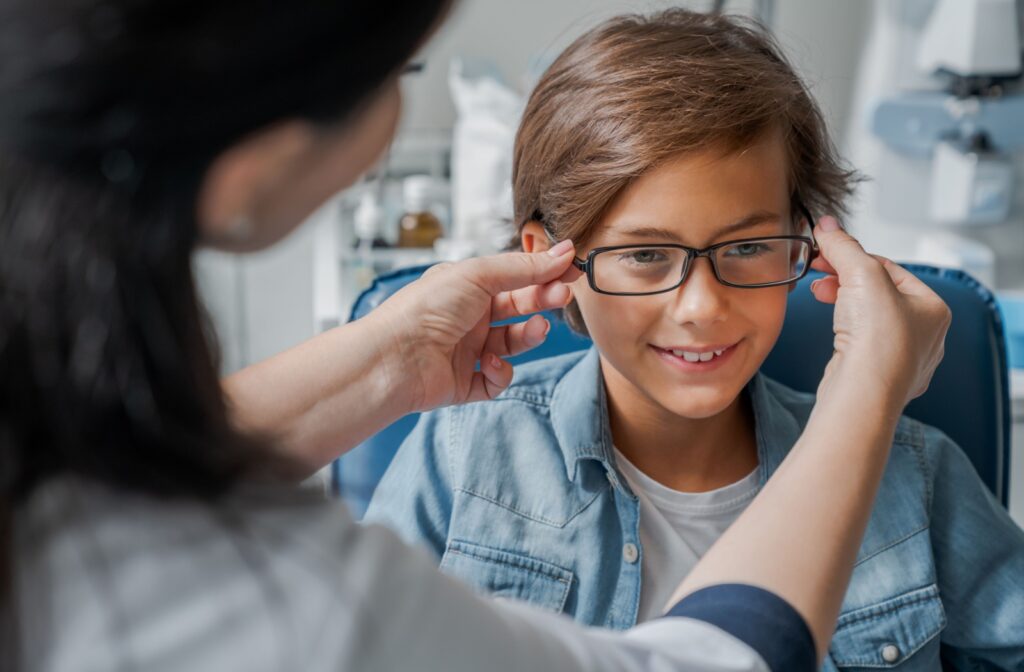
No, wearing your glasses too much will not harm your eyes. Glasses are intended to correct your vision and improve your quality of life, whether you wear them occasionally to read or if you wear them all day. […]
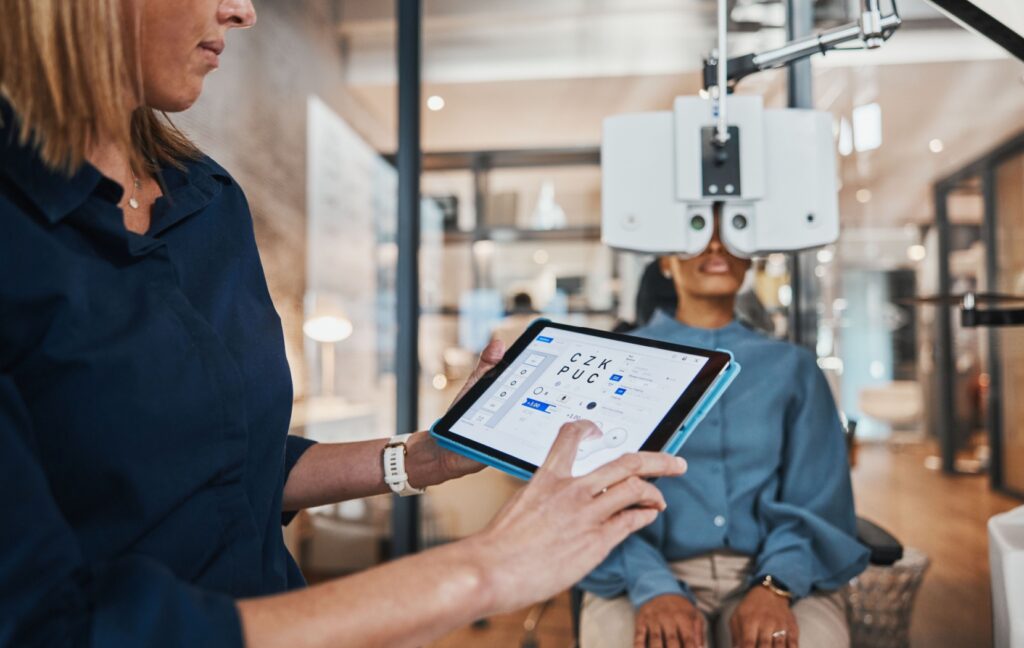
Refractive errors
Dry eye
Keratoconus
Age-related macular degeneration
Glaucoma
Diabetic retinopathy
Amblyopia […]
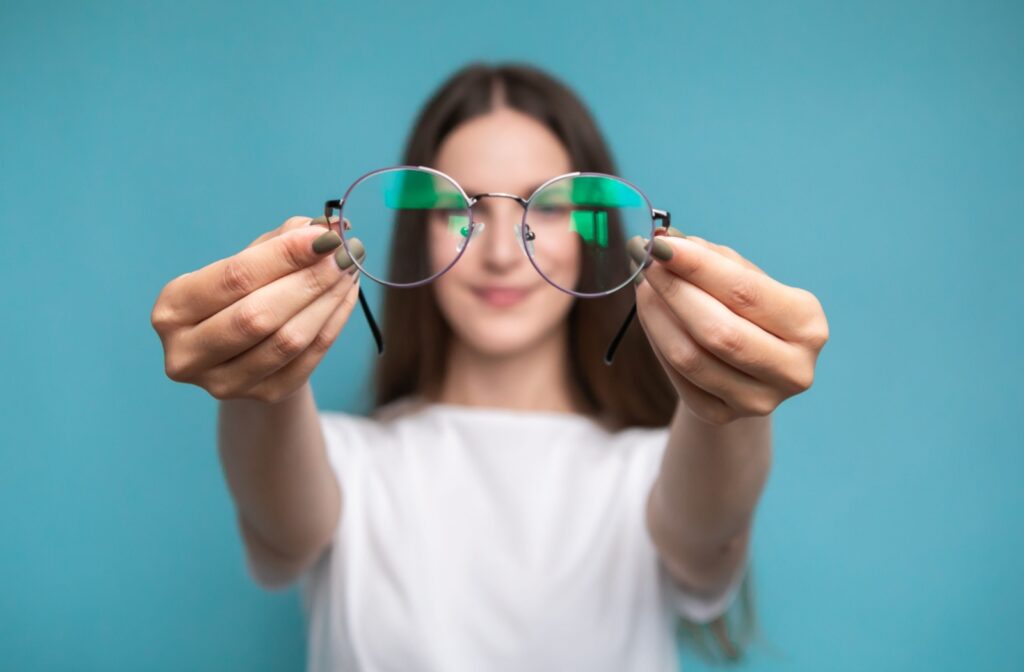
Visual acuity represents how clearly you can see at a particular distance.
A visual acuity of 20/20 is standard for good vision. A ratio that deviates from this standard, like 20/40 or 20/60 suggests that corrective lenses should be worn full-time. […]

While myopia can’t be cured, the progression of myopia can be effectively slowed in children with the help of myopia control. For adults, treatments like glasses and contact lenses or laser eye surgery can correct a person’s vision. […]

Driving isn’t recommended immediately after cataract surgery. As a general rule of thumb, avoid driving for a good 24 hours after surgery, or until your ophthalmologist gives you the green light to get behind the wheel. […]
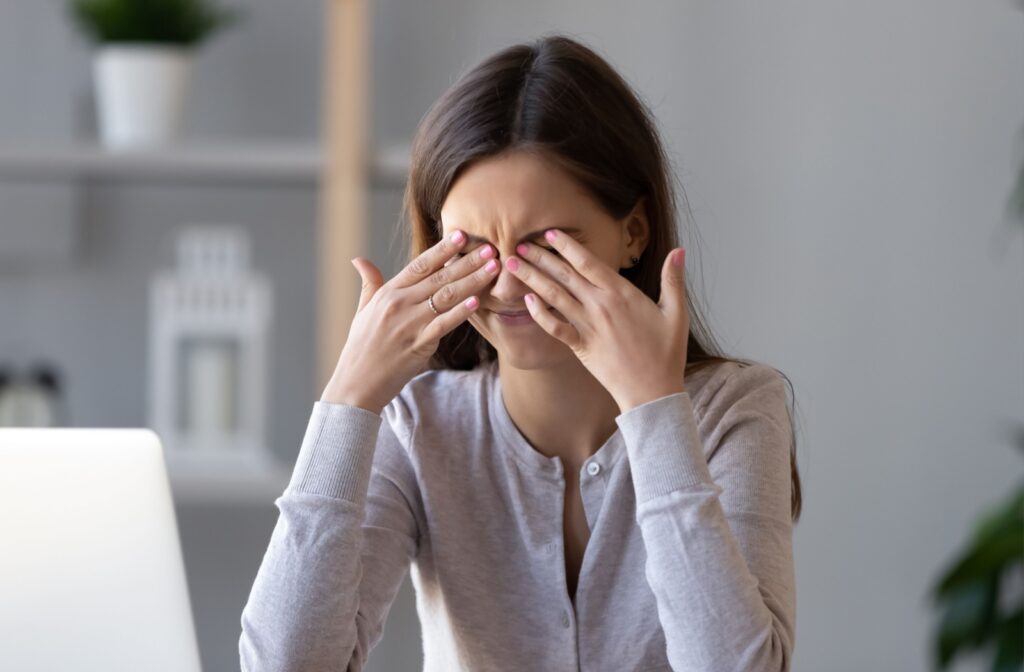
Nutrition and diet go a long way—your eyes need a complex mix of vitamins to create healthy tears. Try to maintain proper eyelid hygiene and prevent the buildup of bacteria, and if you notice discomfort, use a warm compress to find relief. […]

Orthokeratology (ortho-k) lenses are hard gas-permeable contact lenses that reshape the cornea while sleeping. This lens technology makes them a great, non-invasive form of temporary vision correction, eliminating the need to wear corrective lenses during the day.
There are many benefits to ortho-k lenses, some of which include:
Freedom from corrective lenses
Safe and reversible non-surgical vision correction
Comfort for dry eyes
Myopia control […]
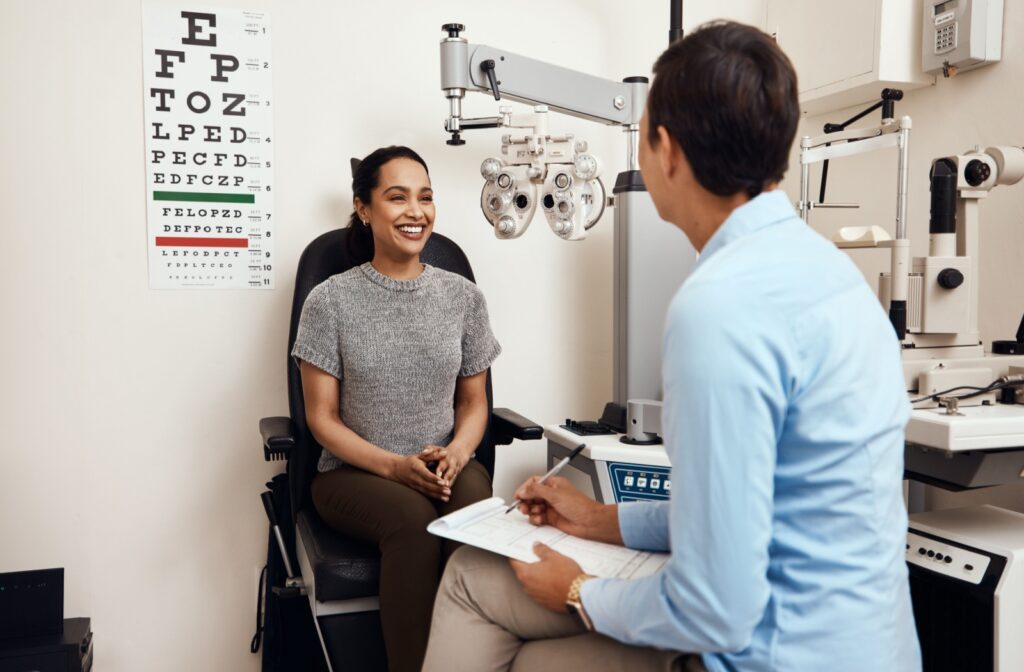
Optometrists are skilled experts in eye care, adept at diagnosing, managing, and treating various eye conditions, including infections. […]

Neurolens glasses are designed to reduce symptoms such as digital eye strain, headaches, and tension in the neck and shoulders. But there’s more to these glasses than meets the eye! Determining if Neurolens is worth it is a personal choice. However, considering their innovative technology and positive feedback, it may be a worthwhile investment. […]